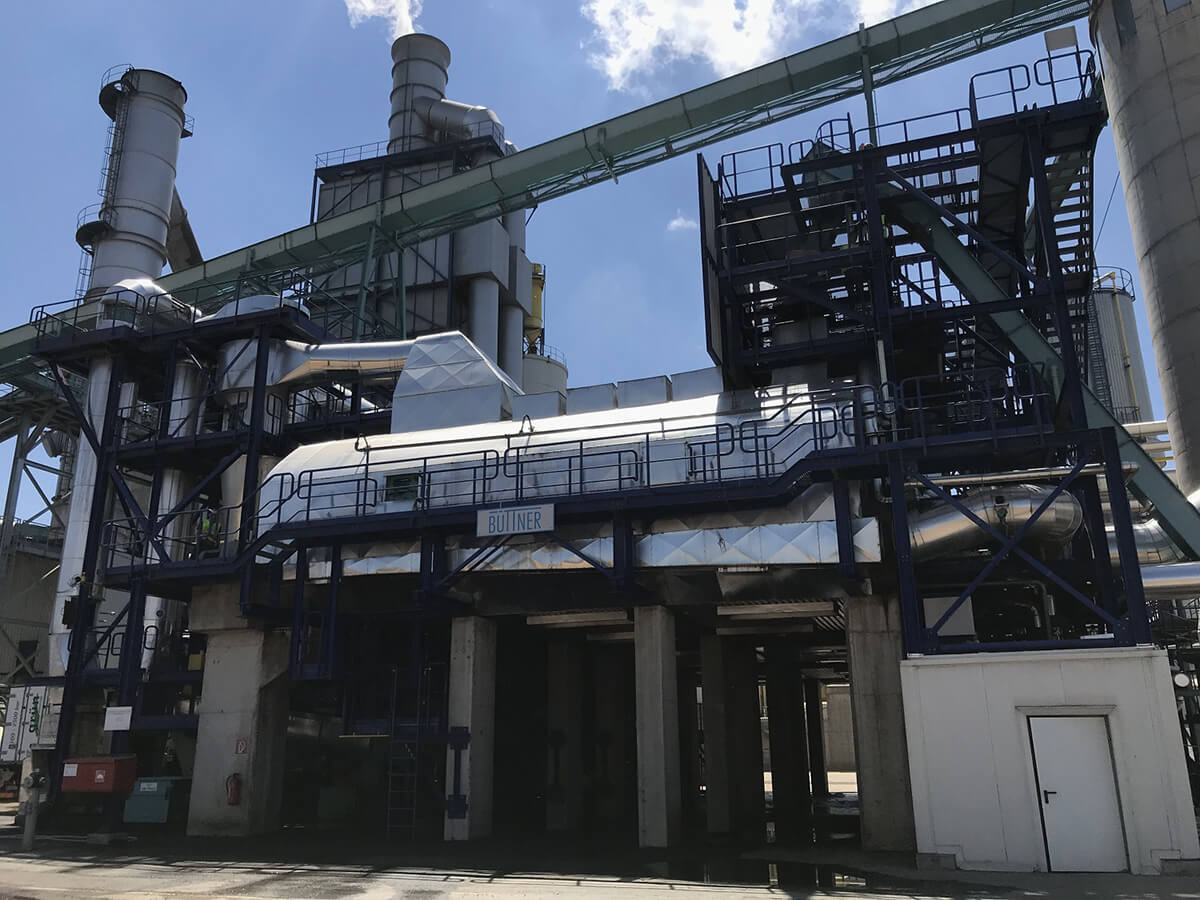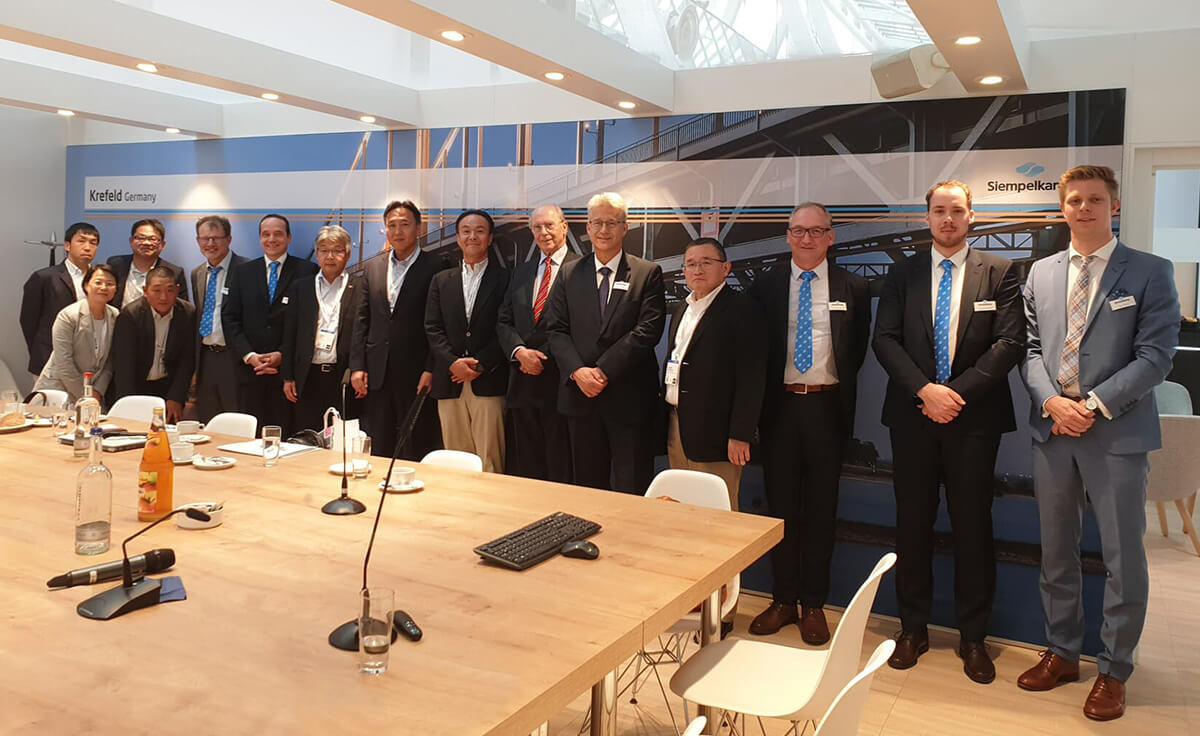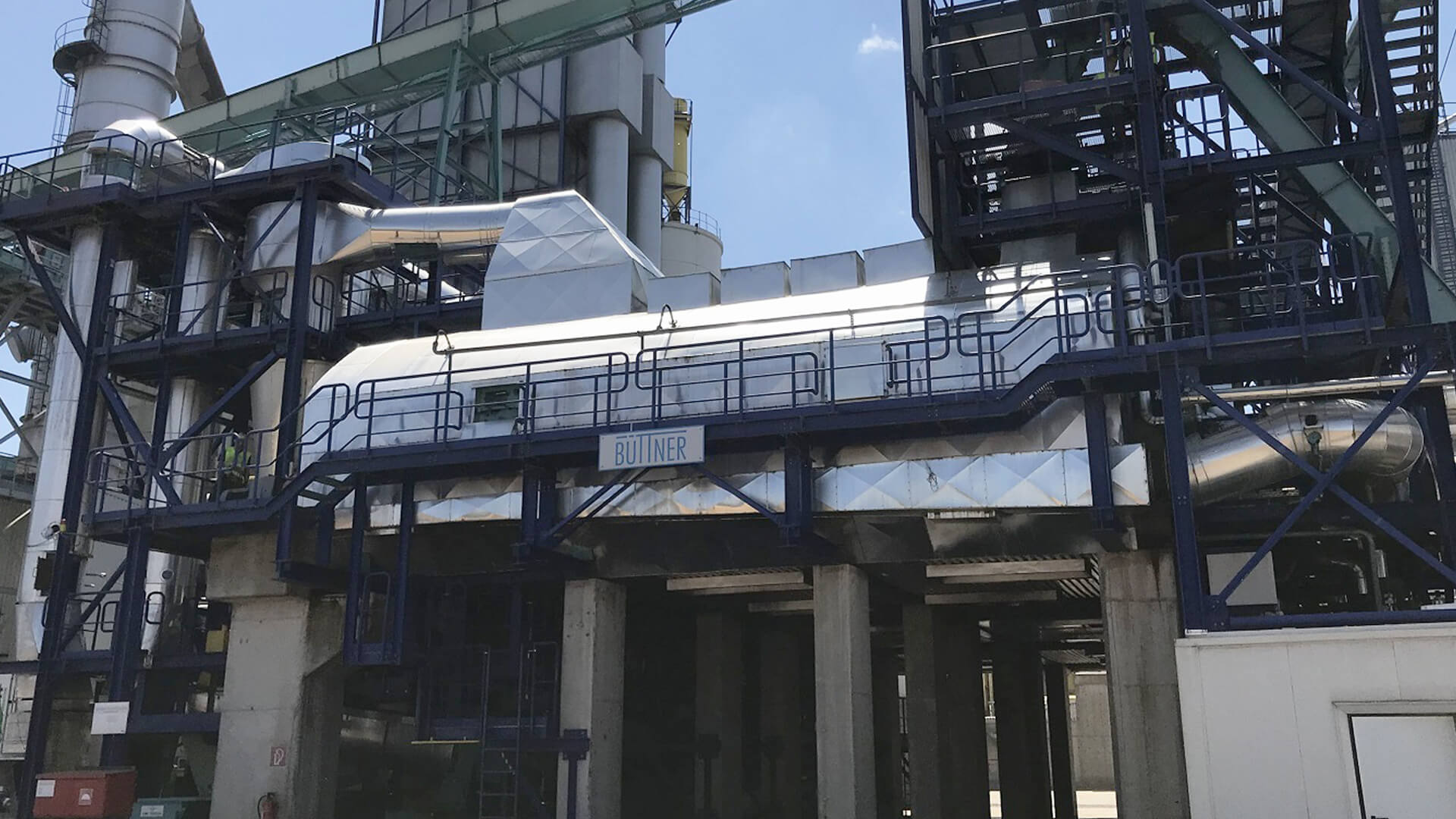Büttner dryer and energy plant for ENBoard Co. Ltd

Japan Novopan Industrial Company Ltd has been the quality leader among Japanese wood-based panel manufacturers for decades and has positioned itself on the local market. Most recently, the company entered into a joint venture with Eidai Co. Ltd. and founded the new company “ENboard”. Together, the companies are regarded as market leaders in the Japanese engineered wood industry. The order for the new Siempelkamp production plant at the foot of Japan’s landmark, Mount Fuji, ranges from wood preparation to finishing to the overall planning of the plant. About 10 years ago, the company bought a plant in Krefeld and is now, once again, relying on the former team, which had main-tained a close relationship with its Japanese partner over the years.
Büttner’s scope of supply consists of two indirectly heated rotary bundle dryers – exceptional in the wood-based panel industry, but a proven Novopan concept. As more and more Siempelkamp customers, the Japanese company ordered the proven combination “dryer plus energy plant”, because Büttner’s com-petence to supply both systems convinces the market. “The control and regulation of our systems alone is designed in such a way that all production parameters can be taken into account and varied if necessary. If, for example, the energy requirement changes, an integrated control process between the dryer and the energy system can do the adjustment much more accurately and efficiently than if the two systems were managed separately,” explains Carsten Otto, Sales Director at Büttner, the concept.
The dryers together have a throughput of 30,000 kg / h, the energy plant a firing capac-ity of 18.5 MW, generated from a grate burner and two dust burners. The scope of supply consists of the complete plant including radiation and convective heaters as well as evaporators and economizers. The energy supply is ensured by a combined steam and thermal oil plant. The indirectly heated dryers are heated with steam, the ContiRoll® and the downstream process with thermal oil. Büttner’s interface competence also includes the complete planning of steam and thermal oil pipelines, cyclones and com-bustion chamber walls.
EnBoard-Order: The full spectrum
In addition to the overall plant design, the order volume for ENboard Co. Ltd. includes all core machines for wood processing, power generation and drying as well as classification and gluing systems. Siempelkamp also supplies the forming and press lines as well as the board handling systems. The heart of the new plant is a Generation 9 ContiRoll® press with a PMDI package (PMDI=polymers of diphenylmethane diisocyanates), Büttner’s indirect drying technology and an energy plant. The plant will mainly be operated with recycled wood and will primarily serve the local market with formaldehyde- free, heavy, particleboard.

Yes, we can JIS!
A special feature of the contract is the strict adherence to the Japanese JIS standard. Here it is not just a question of ensuring that the materials used meet the JIS standard. The design and calculation of the scope of deliv-ery are also subject to the standard, as are the quality management and the entire logging of a project.
Already during the manufacturing process in Germany, the Büttner team ensures that the JIS standards are taken into account. This is a complex process that not every company can or is willing to perform. “The JIS standard is not necessarily stricter than comparable European standards such as DIN, but different. It goes without saying that we are prepared to accept it – and it may open the door for us for further projects in the Japanese market,” says Jörg Melin, Sales Manager at Büttner.
The design work for ENboard Co. Ltd. has just been completed. At the beginning of 2020, deliveries to Japan are on the agenda – and many important milestones of a tight schedule have been reached!
JIS
The Japanese Industrial Standards (JIS) define standards for a wide range of products and technologies. They are developed by the Japanese Industrial Standards Committee (JISC), the national standards body in Japan. Products from the area of mechanical and electrical engineering, the mining sector, automotive construction, railway or shipbuilding – but also ceramics, medical equipment or management systems are standardized according to the JIS standard.





